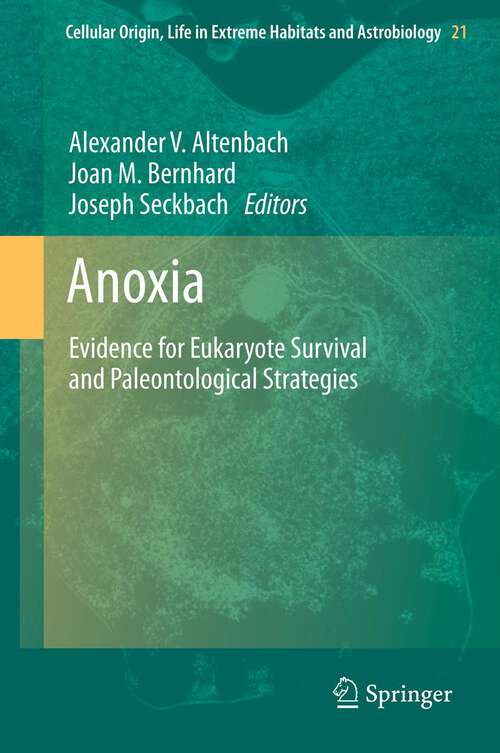Anoxia: Evidence for Eukaryote Survival and Paleontological Strategies (Cellular Origin, Life in Extreme Habitats and Astrobiology #21)
By: and and
Sign Up Now!
Already a Member? Log In
You must be logged into Bookshare to access this title.
Learn about membership options,
or view our freely available titles.
- Synopsis
- ANOXIA defines the lack of free molecular oxygen in an environment. In the presence of organic matter, anaerobic prokaryotes produce compounds such as free radicals, hydrogen sulfide, or methane that are typically toxic to aerobes. The concomitance of suppressed respiration and presence of toxic substances suggests these habitats are inhospitable to Eukaryota. Ecologists sometimes term such environments 'Death Zones'. This book presents, however, a collection of remarkable adaptations to anoxia, observed in Eukaryotes such as protists, animals, plants and fungi. Case studies provide evidence for controlled beneficial use of anoxia by, for example, modification of free radicals, use of alternative electron donors for anaerobic metabolic pathways, and employment of anaerobic symbionts. The complex, interwoven existence of oxic and anoxic conditions in space and time is also highlighted as is the idea that eukaryotic inhabitation of anoxic habitats was established early in Earth history.
- Copyright:
- 2011
Book Details
- Book Quality:
- Publisher Quality
- ISBN-13:
- 9789400718968
- Related ISBNs:
- 9789400718951
- Publisher:
- Springer Netherlands
- Date of Addition:
- 08/03/18
- Copyrighted By:
- Springer
- Adult content:
- No
- Language:
- English
- Has Image Descriptions:
- No
- Categories:
- Nonfiction, Science, Earth Sciences
- Submitted By:
- Bookshare Staff
- Usage Restrictions:
- This is a copyrighted book.
Reviews
Other Books
- by Joseph Seckbach
- by Joan M. Bernhard
- by Alexander Altenbach
- in Nonfiction
- in Science
- in Earth Sciences
